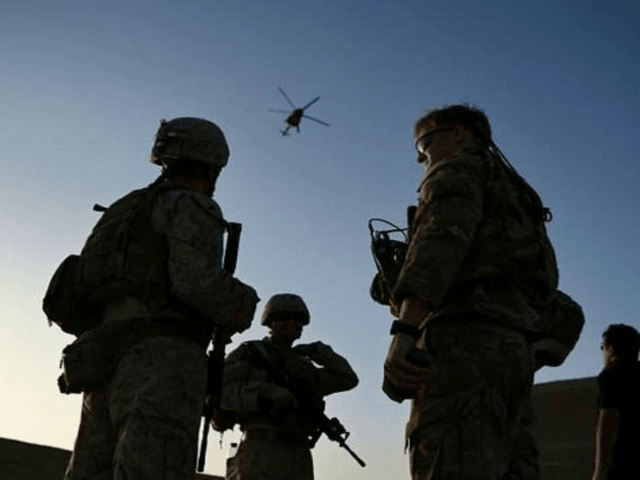Deteriorating security conditions in Africa fueled by jihadist groups are forcing U.S. troops to expand their military footprint with “limited resources,” placing their lives in peril, the Military Times reported this week.
The report echoes earlier concerns from senior military leaders. The estimated 6,000 troops spread throughout 53 countries across the African continent suffer from capability lapses due to the insufficient resources, noted Gen. Thomas Waldhauser, the commander of U.S. Africa Command (AFRICOM), in March.
“Africa lacks a theater distribution network to support our forces,” testified the general. “This capability gap forces our personnel to revert to costly and ineffective ad hoc solutions.”
“Africa’s security environment is dynamic and complex, requiring innovative solutions,” he added. “Even with limited resources or capabilities, Africa Command aggressively works with partners and allies to execute our missions and mitigate risk.”
In the countries that do have an American military presence, there are usually less than 50 troops, the Military Times reported this week, adding, “Logistics support is simply not there, and access to other sophisticated military hardware or U.S. up-armored vehicles, like mine-resistant ambush protected vehicles, is not entirely feasible, former U.S. special operations forces have told Military Times.”
The low availability of resources has compelled U.S. troops to seek out assistance from potential allies and contractors in the region.
“For personnel recovery, Africa Command relies heavily on contract Search and Rescue assets due to lack of dedicated assets to support operations,” Gen. Waldhauser told the Senate Armed Services Committee in March, adding:
Moving forward, we continue to focus our decisive effort on building African partner capacity and will continue to work closely with the international and interagency partners to make small, wise investments which pay huge dividends in building stable and effective governments, the foundation for long-term security in Africa. I’m confident with your support, Africa Command will protect and promote United States interests and keep the United States safe from threats emanating from the African continent.
The general acknowledged that capability shortcomings prevent prospective African allies from effectively carrying out certain missions, placing U.S troops’ lives at risk.
He added:
African partners lack the capability and capacity to assist with personnel recovery missions. Integrating personnel recovery and surgical stabilization/medical sustainment capabilities are a moral obligation and essential for the proper care of U.S. service members who risk their lives to protect our nation.”
The top commander in Africa stressed how the resource-fueled problems hinder AFRICOM’s ability to protect America’s national security from the jihadists across the continent.
Waldhauser’s testimony about AFRICOM’s suffering from a lack of resources came in March, months before a large number of Islamic State (ISIS/ISIL)-linked jihadists reportedly overwhelmed a much smaller group of American troops in October, killing four of them and shedding light on the previously obscure operation.
Although Africa is home to terrorist groups ranging from Shiite Iran’s narco-terrorist proxy Hezbollah to Sunni rival groups al-Qaeda, the Islamic State (ISIS/ISIL), and their respective affiliates, the U.S. mission in the continent reportedly does not get the same level of attention and support as other theaters dealing with the same level of terrorist threats.
As a direct result of the presence of Islamic extremist groups in Africa, the stakes are not only high for the stability of the continent and nearby Middle East, but also for America’s national security.
“Parts of Africa remain a battleground between ideologies, interests, and values. Equality, prosperity, and peace are often pitted against extremism, oppression, and conflict,” Waldhauser told lawmakers in March. “Today, trans-regional violent extremist organizations on the continent constitute the most direct security threat to the United States. To address this threat, our military strategy articulates a long-term regional focused approach for a safe and stable Africa.”
“We owe … the men and women they lead unambiguous national security priorities, clarity in our strategic thinking, and an unwavering commitment to providing them the resources required to support the necessary courses of action,” declared Sen. John McCain (R-AZ), chairman of the Senate Armed Services Committee, referring to U.S. Africa Command (AFRICOM) in March.
However, the U.S. military has only carried out airstrikes in Libya and Somalia. The two countries are considered prominent sources of the various jihadi groups.
Although the mission in Africa is focused on training and advising the host nations’ partner forces, the incident in Niger has highlighted the considerable risk participating U.S. troops face.

COMMENTS
Please let us know if you're having issues with commenting.